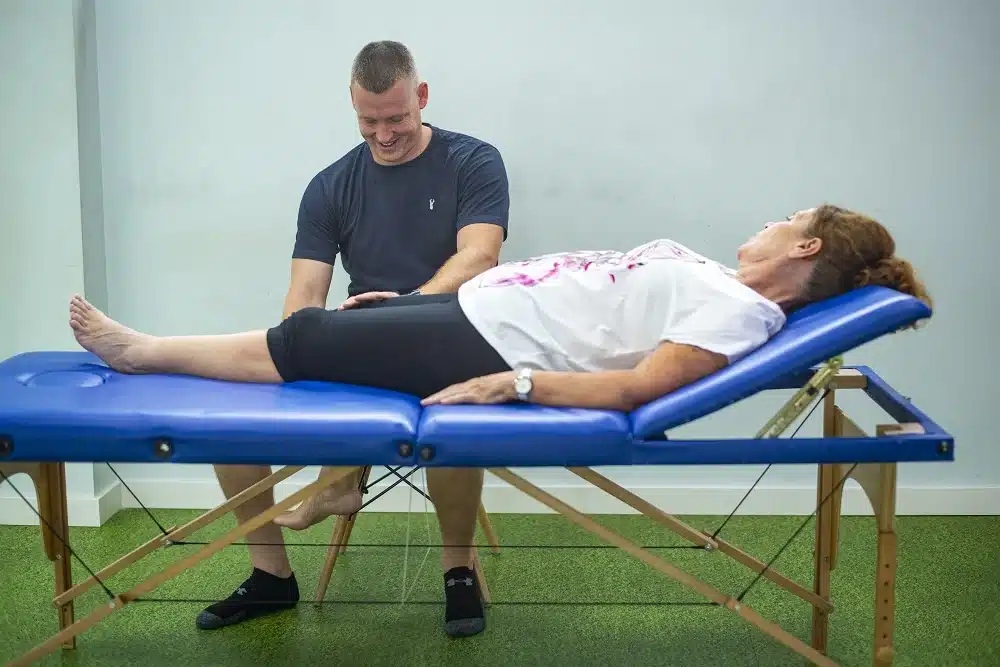In simple terms, it is a specialized approach to physical therapy that focuses on the rehabilitation of people with neurological disorders.
These disorders can range from strokes to traumatic brain injuries, creating the need for a unique treatment approach.
Imagine this journey as a gradual process, where every small step counts. Neurological physiotherapy becomes the expert guide that accompanies patients along this path.
Through specialized techniques adapted to individual needs, we seek to improve motor function, mobility and, ultimately, quality of life.
Each person is unique, and so are their neurological challenges. This is where neurological physiotherapy shines.
RehabOT professionals do not apply a generic approach, but rather design personalized treatment plans. This ensures that each patient receives the specific care she needs to advance her recovery.
Is neurological physiotherapy important?
Understanding the interconnection between the brain and body is essential to understanding why neurological physical therapy is so crucial.
Through specific exercises and techniques, neuronal regeneration is encouraged and brain plasticity is stimulated. This means that the brain has the ability to adapt and recover, even after significant injuries.
Before we continue exploring the deeper details, let me tell you a secret: neurological physical therapy is not just a series of exercises. It is a dynamic process that unlocks the potential of the body and mind.
Benefits of Neurological Physiotherapy
Now that we’ve laid the foundation, let’s explore the tangible benefits of neurological physical therapy. From improving coordination to increasing muscle strength, each session is designed to make concrete progress.
Patients experience not only physical improvements, but also a boost in their confidence and self-esteem. At RehabOT, we understand that neurological physical therapy is not simply a series of exercises; It is a catalyst to transform lives.
One of the primary objectives of neurological physiotherapy is to maximize the patient’s functionality. This means working not only on muscle strength and coordination, but also the ability to perform activities of daily living. Physiotherapists design specific programs that help patients regain independence in tasks such as dressing, eating and moving, which, in turn, significantly improves their quality of life.
Reducing the Risk of Secondary Injuries
Patients with neurological conditions are more susceptible to falls and other injuries due to muscle weakness, lack of balance and coordination. Neurological physiotherapy, by improving these areas, contributes to minimizing the risk of these secondary injuries, which is crucial to avoid complications that could delay the recovery process or worsen the patient’s condition.
Pain management
Chronic pain is a reality for many patients with neurological disorders. Through specialized techniques, neurological physical therapy offers effective pain management strategies. This may include therapeutic exercises, manual therapy, and the use of technologies such as transcutaneous electrical nerve stimulation (TENS), which help relieve pain and improve the patient’s overall well-being.
As we explore the importance of this discipline, we hope we have cleared up any doubts and sparked your curiosity about the potential of neurological rehabilitation.
Leave us your data to start your treatment







